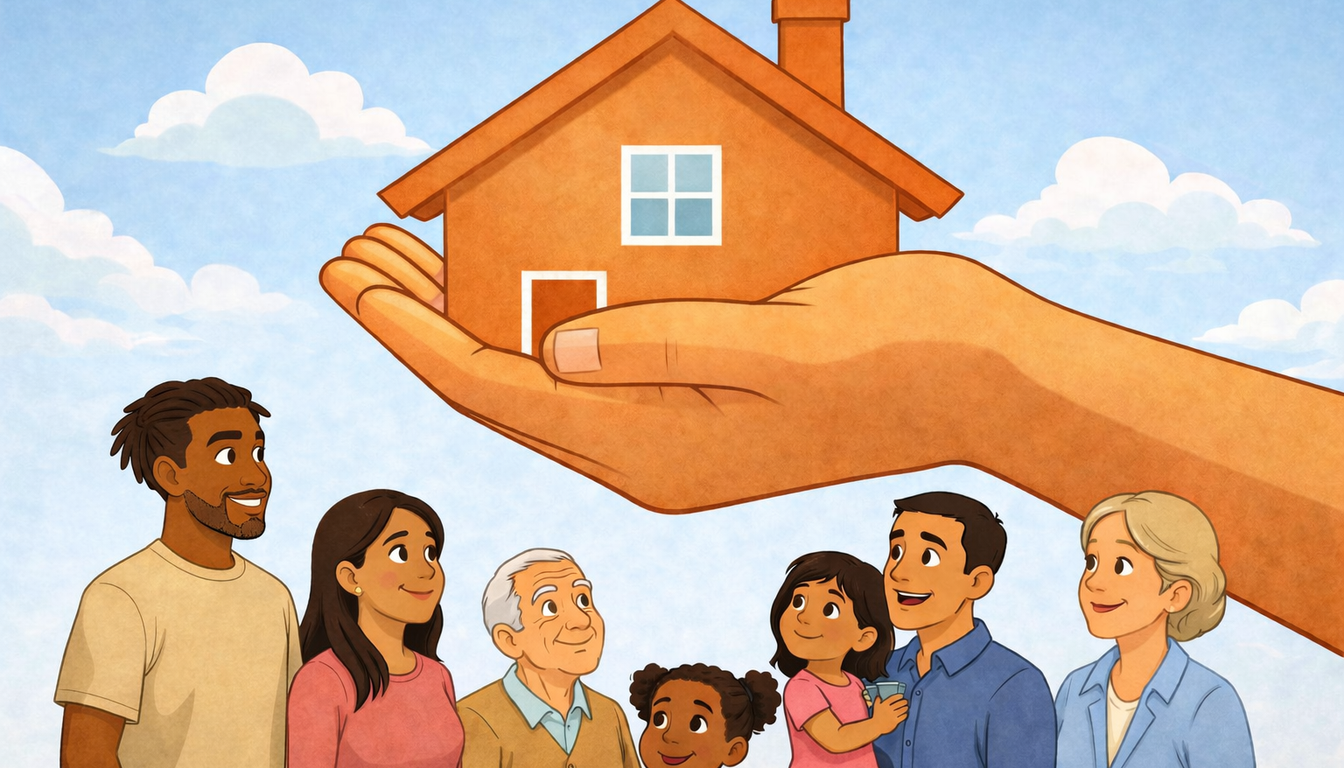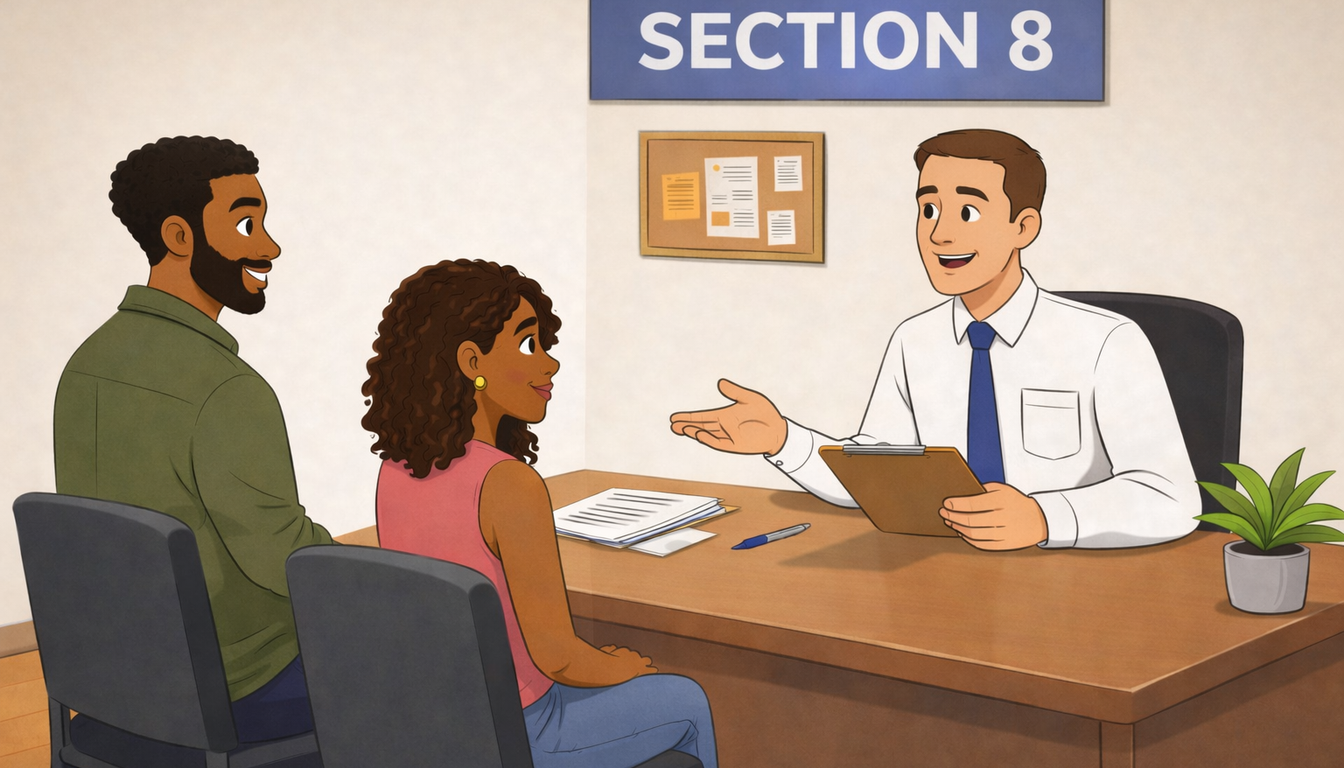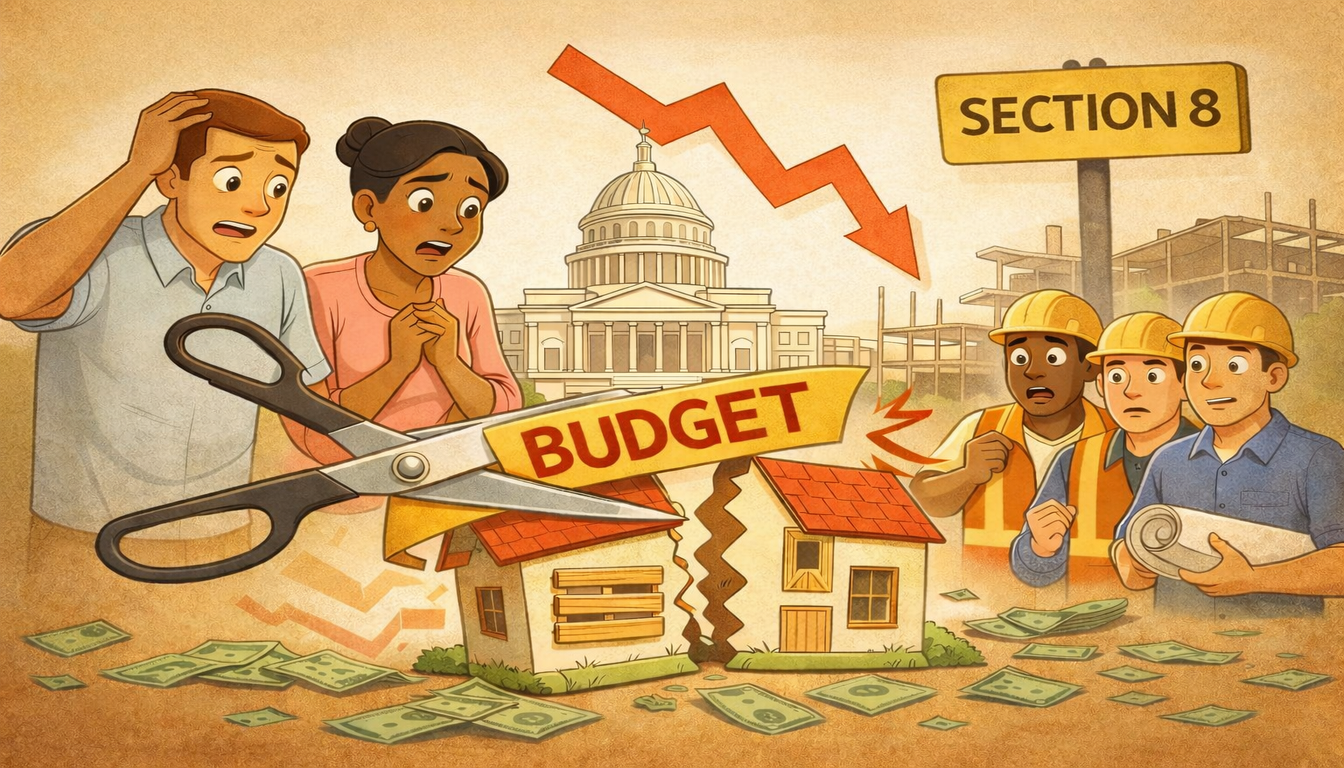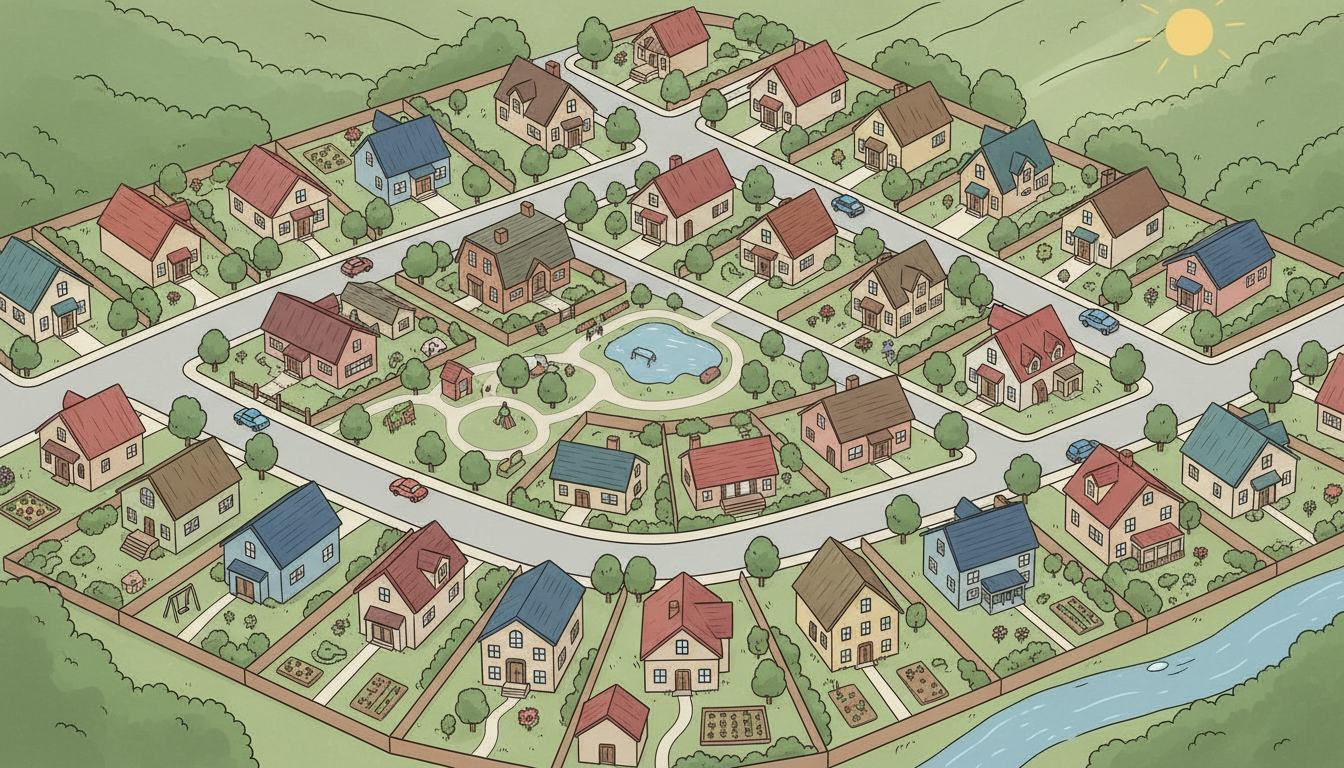
Navigating the world of housing assistance can be complex.
For social workers and their clients, understanding the options available is crucial.
One such option is the HUD-VASH housing program.
This program combines housing vouchers from the Department of Housing and Urban Development (HUD) with supportive services from the Veterans Affairs (VA).
It's designed to help homeless veterans find stable, long-term housing.
In this article, we'll delve into the impact of HUD-VASH supportive housing. We will talk about how it helps veterans without homes, who can apply, how to apply, and what services it provides. Whether you work in social services, support housing rights, or need help finding housing, this guide explains HUD-VASH housing in an easy to understand way.
Understanding HUD-VASH Housing
The HUD-VASH program is a unique partnership between two federal agencies.
The Department of Housing and Urban Development (HUD) provides housing vouchers. These vouchers help cover the cost of rental housing in the private market.
On the other hand, the Department of Veterans Affairs (VA) offers supportive services. These services include case management and clinical services. They aim to address the specific needs of homeless veterans.
Together, these two components form the HUD-VASH program. This program is designed to provide a long-term, sustainable solution to veteran homelessness.
By addressing both housing and supportive service needs, HUD-VASH takes a holistic approach to homelessness. This approach recognizes that stable housing is just one piece of the puzzle. Supportive services are also crucial in promoting independence and recovery among veterans.
The HUD-VASH Program: A Brief Overview
The HUD-VASH program was established as a critical component of the federal plan to end veteran homelessness. It combines HUD housing vouchers with VA supportive services to help homeless veterans find stable housing.
The program has been successful in helping tens of thousands of veterans across the country. It has proven to be a cost-effective solution in reducing homelessness.
The HUD-VASH vouchers are a type of Section 8 voucher specifically for veterans. They are used to cover the cost of rental housing in the private market.
The supportive services offered through the VA are tailored to the individual needs of each veteran. They often include mental health services and substance abuse treatment. These services are designed to promote veteran independence and recovery.
HUD-VASH Benefits for Veterans
The HUD-VASH program offers many different benefits for veterans, helping them transition from homelessness to stable, independent living. There’s six core benefits of the HUD-VASH program for veterans:
- Affordable Housing: The primary benefit of HUD-VASH is access to affordable housing. The vouchers provided by HUD cover a significant portion of the rent, reducing the financial burden on veterans. This allows them to live in safe, stable housing without the constant fear of eviction due to inability to pay rent.
- Comprehensive Support Services: Veterans participating in HUD-VASH receive extensive support services through the VA. These services help veterans with things like healthcare, mental health support, help for substance use, and job training. The goal is to understand why veterans become homeless and support them to become independent.
- Improved Quality of Life: Stable housing and access to healthcare and support services significantly improve the quality of life for veterans. They can focus on their recovery and personal development without the stress and uncertainty of homelessness. This stability also positively impacts their mental and physical health.
- Community Integration: By living in the community, veterans in the HUD-VASH program can reintegrate into society. They have the opportunity to build social connections, engage in community activities, and develop a sense of belonging. This social integration is crucial for their overall well-being and long-term success.
- Reduction in Homelessness: HUD-VASH has been instrumental in reducing veteran homelessness nationwide. The program helped many veterans find housing and support. Because of this, fewer veterans are now homeless. This helps the broader goal of ending homelessness among veterans.
- Enhanced Stability and Independence: The combination of housing and supportive services helps veterans achieve stability and independence. They can focus on their goals, like employment, education, and personal development, without the constant worry of finding a place to live.
How to Apply for HUD-VASH
Applying for the HUD-VASH program involves several steps, and it requires coordination between the veteran, the VA, and local housing authorities. Here is a detailed guide on how veterans can apply for the program:
1. Eligibility Determination
The first step in the application process is determining eligibility. To qualify for HUD-VASH, a veteran must meet the following criteria:
- Veteran Status: The applicant must be a veteran who is eligible for VA healthcare services. This includes veterans who have served in active duty and have been discharged under conditions other than dishonorable.
- Homelessness: The veteran must be homeless or at risk of homelessness. The VA uses the definition of homelessness established by the McKinney-Vento Homeless Assistance Act, which includes individuals living in emergency shelters, transitional housing, or places not meant for human habitation.
- Need for Supportive Services: The veteran must demonstrate a need for case management and supportive services provided by the VA.
2. Referral to VA Case Management
Once a veteran is determined to be eligible, they are referred to a VA case manager. This referral can come from various sources, including VA medical centers, homeless shelters, community organizations, or self-referral by the veteran. The case manager plays a crucial role in the application process and provides ongoing support to the veteran.
3. Assessment and Enrollment
The VA case manager looks at all the veteran's needs. This includes their housing, health, mental health, and past substance use. They check other things too. Based on the evaluation, the case manager makes a personalized plan to help the veteran with their unique needs.
If the veteran is deemed a good candidate for HUD-VASH, they are enrolled in the program. This enrollment includes a commitment to participate in case management and follow the service plan developed by the case manager.
4. Housing Search
Once enrolled in HUD-VASH, the veteran begins the search for suitable housing. The case manager usually helps in this process, helping the veteran find rental units that meets their needs. The goal is to find housing that is safe, affordable, and in a location that helps the veteran’s recovery and stability.
5. Voucher Issuance and Lease Signing
After identifying a suitable rental unit, the veteran receives a Housing Choice Voucher from the local public housing authority (PHA). This voucher can be used to secure the rental unit, with the PHA paying a portion of the rent directly to the landlord. The veteran is responsible for paying the remaining portion of the rent.
The case manager assists the veteran in navigating the lease signing process, ensuring that all necessary paperwork is completed, and that the terms of the lease are understood. The goal is to facilitate a smooth transition into the new housing.
6. Ongoing Case Management and Support
Once housed, the veteran continues to receive case management and supportive services from the VA. The case manager will check in with the veteran, provide ongoing support, and helps solve any of the problems that may happen. Their goal is to make sure that the veteran stays housed and makes progress towards their personal goals.
The Role of Social Workers in Navigating HUD-VASH
Social workers play a crucial role in the HUD-VASH program. They assist veterans in navigating the complex system of housing assistance.
One of their key responsibilities is to provide information on eligibility and the application process. They help veterans understand the steps involved and guide them through each stage.
Social workers also advocate for their clients. They work to ensure that veterans receive the support they need to secure and maintain stable housing.
In addition, social workers often provide emotional support. They understand the emotional impact of homelessness and provide compassionate care to their clients.
Finally, social workers play a role in connecting veterans with additional resources. They can help clients access mental health services, substance abuse treatment, and other supportive services offered through the VA.
Supportive Services Offered Through HUD-VASH
The HUD-VASH program is more than just a housing initiative. It also offers services to help veterans keep their homes and enhance their lives.
These services are provided by the VA and include case management and clinical services. Case managers work closely with veterans to develop personalized care plans tailored to their unique needs.
Mental health services and substance abuse treatment are often part of the support provided. These services help treat the problem that may have caused the housing issue in the first place.
The goal of these supportive services is to promote veteran independence and recovery. By addressing both housing and supportive service needs, HUD-VASH takes a holistic approach to ending veteran homelessness.
The Emotional Impact of Housing Instability and How HUD-VASH Helps
Housing instability can have a profound emotional impact. It can lead to feelings of fear, uncertainty, and stress, which can exacerbate existing mental health issues.
The HUD-VASH program recognizes this and provides supportive services to address these emotional challenges. This includes mental health services and substance abuse treatment, which are crucial for many veterans struggling with homelessness.
By providing stable housing and supportive services, HUD-VASH helps to alleviate the emotional burden of housing instability. This can lead to improved mental health and a better quality of life for veterans.
Understanding the emotional impact of homelessness is crucial for social workers and other professionals who assist veterans. It allows them to provide more effective support and to advocate for their clients within the HUD-VASH program.
Success Stories and Community Impact of HUD-VASH
The HUD-VASH program has helped tens of thousands of veterans find stable housing. These success stories are a testament to the program's effectiveness and its impact on individual lives.
Beyond the individual level, the program also has a significant impact on the community. By reducing homelessness among veterans, HUD-VASH helps to alleviate the strain on emergency services and other community resources.
The program's success also helps to reduce the stigma associated with homelessness. This can lead to greater community support for initiatives like HUD-VASH and a broader understanding of the challenges faced by homeless veterans.
These success stories and community impacts underscore the importance of the HUD-VASH program. They highlight the program's role in not only providing housing but also promoting recovery and independence for veterans.
Additional Resources and Support for HUD-VASH Participants
For those involved in the HUD-VASH program, additional resources and support can be invaluable. These can range from local community services to national organizations dedicated to veteran support. Social workers can play a key role in connecting clients with these resources.
In addition to HUD and VA services, many other organizations offer support to veterans. These can include mental health services, job training programs, and family support services.
Here are a few resources to consider:
- National Coalition for Homeless Veterans: Provides resources and advocacy for homeless veterans.
- Veterans Crisis Line: Offers confidential support for veterans in crisis.
- National Alliance on Mental Illness (NAMI): Provides mental health resources and support for veterans.
- U.S. Department of Labor Veterans' Employment and Training Service (VETS): Offers resources for job training and employment.
Remember, the journey towards stable housing can be challenging, but with the right support and resources, it is achievable.
Navigating the Section 8 housing process can feel overwhelming, and that's where Section 8 Search comes in. We're more than just a listing website; we're a dedicated resource designed to make finding housing under the Housing Choice Voucher Program straightforward and stress-free. Our platform offers user-friendly tools to explore listings and waiting list statuses nationwide, all built on official HUD data. We're also passionate about providing clear, helpful information and guidance, empowering you with the knowledge you need to understand eligibility, complete your application, and confidently navigate your housing journey.









.png)
.png)
.jpg)



.png)
.png)
.png)


